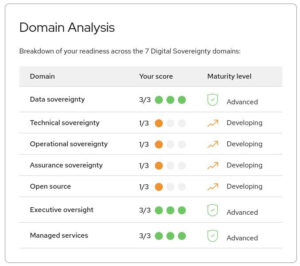Somebody from Austria has petitioned the European Parliament to start using Linux and open-source apps instead of Microsoft stuff.
I received an email this morning from the fine folks at /e/OS, which if you don’t know is a degoogled and privacy respecting Android-based mobile operating system, which just happens to be developed over in Europe. The email pointed to a petition on the Petitions section of the European Parliament’s website, calling among other things for the EU to develop a suitable Linux distribution for governments to use in place of Windows. The other things the petition calls for, is for the EU to start using open source alternatives to proprietary software:
“Petition Summary
The petitioner calls for the European Union to actively develop and implement a Linux-based operating system, termed ‘EU-Linux’, across public administrations in all EU Member States. This initiative aims to reduce dependency on Microsoft products, ensuring compliance with the General Data Protection Regulation (GDPR), and promoting transparency, sustainability, and digital sovereignty within the EU. The petitioner emphasizes the importance of using open-source alternatives to Microsoft 365, such as LibreOffice and Nextcloud, and suggests the adoption of the E/OS mobile operating system for government devices. The petitioner also highlights the potential for job creation in the IT sector through this initiative.”
My first thought upon reading this was something like “what about us?” or “why isn’t the petitioner including the good ol’ USA in his or her petition?”, but immediately knew the answer, which changed my thought to a more productive — in a wishful thinking sort of way — “why doesn’t Congress have a page on its website that allows us to petition for things.”
Why, indeed. After all, Congress wouldn’t have to actually act on any of the ideas thrown against the wall by our country’s good citizens (and our bad ones too, since we’re an inclusive nation). But what could be the harm in letting us present things for our fellow citizens to endorse or not, which would give our good congresspeople (and bad ones too, since a large number of our electorate is uninformed) some ideas on what the people want.
Think about it: if one of the ideas that one of us citizens threw against the wall on an Official Congressional Petition Page started getting a lot of signatures and it was a really evil and socialist idea (like maybe an easy to implement plan that would both create jobs and be good for the environment), Democrat lawmakers would have something new to rally around to get votes and Republican lawmakers would have something to be against, which would get them votes too.
It could also work the other way around. If a popular petition was for something that would deny women a few more rights unless they make more babies (because more babies is something this overpopulated world badly needs), the current batch of Republicans could make some hay by supporting the idea and voting it into law, and the Dems could get support by trying to block it. It would be a win-win situation — and totally in keeping with American exceptionalism!
But that’s enough dreaming for one day.
If you live in the EU, sign the petition if you support software freedom. Don’t sign it if you don’t. Oh, and if you don’t, why are you reading FOSS Force?
Christine Hall has been a journalist since 1971. In 2001, she began writing a weekly consumer computer column and started covering Linux and FOSS in 2002 after making the switch to GNU/Linux. Follow her on Twitter: @BrideOfLinux






Christine, as usual I like your column, but unfortunately there some really messed up editing here. In the title, “Citizen’s” (singular possessive) should be “Citizens” (plural). In the 4th paragraph, “wa as” should be “was a” (it was a really evil and socialist idea).